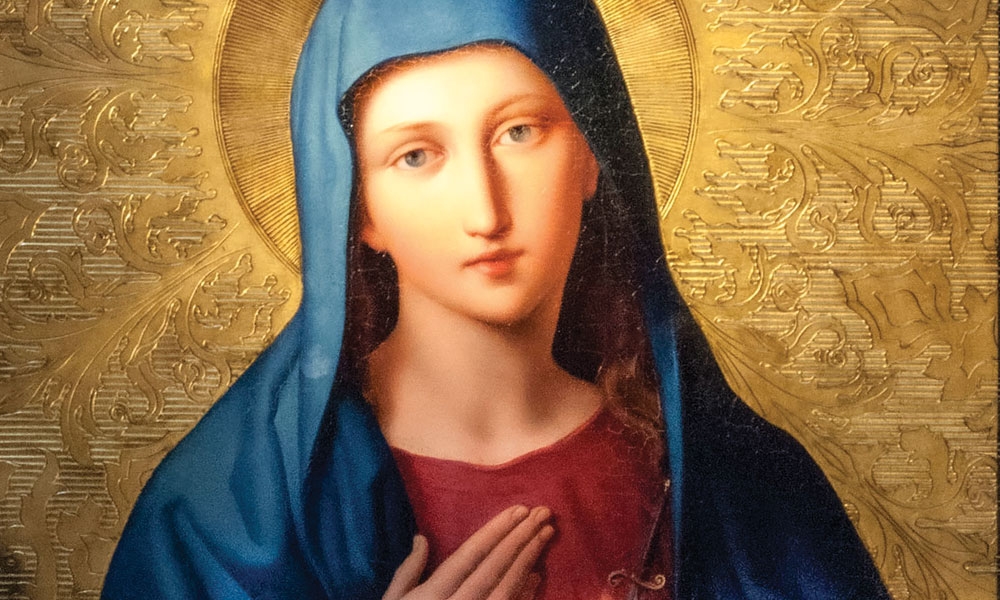
The first five Saturdays
Getting your Trinity Audio player ready...
In 1917, three children from Fatima, Portugal, had an encounter that they would never forget. Most of us know the story. On May 13 of that year, the Blessed Virgin Mary appeared to three shepherd children, Lúcia dos Santos, Francisco Marto, and Jacinta Marto, just outside the village of Aljustrel, near Fatima. For the next few months, the children would see Mary five more times.
In 1917, three children from Fatima, Portugal, had an encounter that they would never forget. Most of us know the story. On May 13 of that year, the Blessed Virgin Mary appeared to three shepherd children, Lúcia dos Santos, Francisco Marto, and Jacinta Marto, just outside the village of Aljustrel, near Fatima. For the next few months, the children would see Mary five more times.
Fatima and other Marian apparitions are deemed by the Church to be “private revelation” and therefore worthy of belief, but we are not required to believe in them nor to observe any related devotions.
There were three “secrets” told to the Fatima children. In the first, they were shown a horrifying vision of hell in which the damned are tormented by dark, ugly, and terrifying demons. In order to save those souls who “go down into the pit,” Our Lady urges devotion to her Immaculate Heart and that people make reparation for offenses committed against the Sacred Heart and her own Immaculate Heart.
As part of that reparation, Our Lady asks for the “Five First Saturdays” devotion to be carried out. That devotion consists of receiving Communion, going to confession, saying the rosary, and meditating on the mysteries of the rosary for 15 minutes on the first Saturdays of five successive months.
The purpose of this devotion is to make reparation to the Immaculate Heart of Mary, for sins committed against her. It is meant to console the Immaculate Heart of Mary and therefore console the Sacred Heart of Jesus in a most special way.
Here’s what Our Lady said to Lúcia:
My daughter the motive is simple: there are five ways in which people offend and blaspheme against the Immaculate Heart of Mary:
The blasphemies against the Immaculate Conception.
Against her Virginity.
Against the Divine Maternity, refusing at the same time to accept her as the Mother of all mankind.
Those who publicly seek to instill in the children’s hearts, indifference, contempt, and even hatred against the Immaculate Mother.
Those who offend her directly in her Sacred Images.
This idea of making reparation, at first, sounds as if God and the Blessed Mother had been hurt by blasphemies and curses against them. And it would be easy to mischaracterize the two exalted figures of Jesus and Mary as peevishly going into a huff until people say they are sorry. However, we know that God is impassible, in other words incapable of suffering or feeling pain, and that those in heaven cannot suffer anguish or hurt in the same way that we do on earth. So, if Mary and Jesus are impervious to suffering, how should we understand this idea of making reparation for our sins against them?
In the same way that, when we commit any sin, we damage ourselves, we also injure ourselves when we sin against Mary and Jesus. The act of reparation, then, becomes an act of repairing the harm we have done to ourselves. And the consolation that we give to God the Son and his mother, becomes a way of our repairing the relationship that we have broken through our sin. In fact, all penance has this remedial effect.
But, you might argue, I’ve never said a word against Jesus or Mary. Why, or indeed how, can I make reparation for the sins of others? This goes back to the reality that we are a human race and, like it or not, we are all connected. Although God recognizes that we are each unique, he also treats us as a people together, as one body, with Christ as the head. In the same way that the original sin of Adam and Eve had a devastating impact on the rest of humanity, the action of one man, Jesus, redeemed the entire human race. Likewise, any act of reparation by one of us has the effect of contributing to the healing of the wound in that damaged relationship by petitioning God to mend the breach.
This proves true when you think about the first Fatima message. Our Lady tells us that our acts of reparation can be used by God to save souls from going down into the fires of hell. The First Five Saturdays devotion might look a tad inconvenient, but that means it also has the advantage of injecting some self-discipline into our spiritual life. And when you think that a little effort can actually contribute to saving souls from eternal death, then the discipline is certainly worth it.



